Watch Us Grow
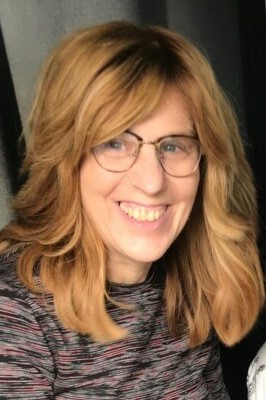
Five popular speakers share the challenges and beauty they see within our community — and within each of us
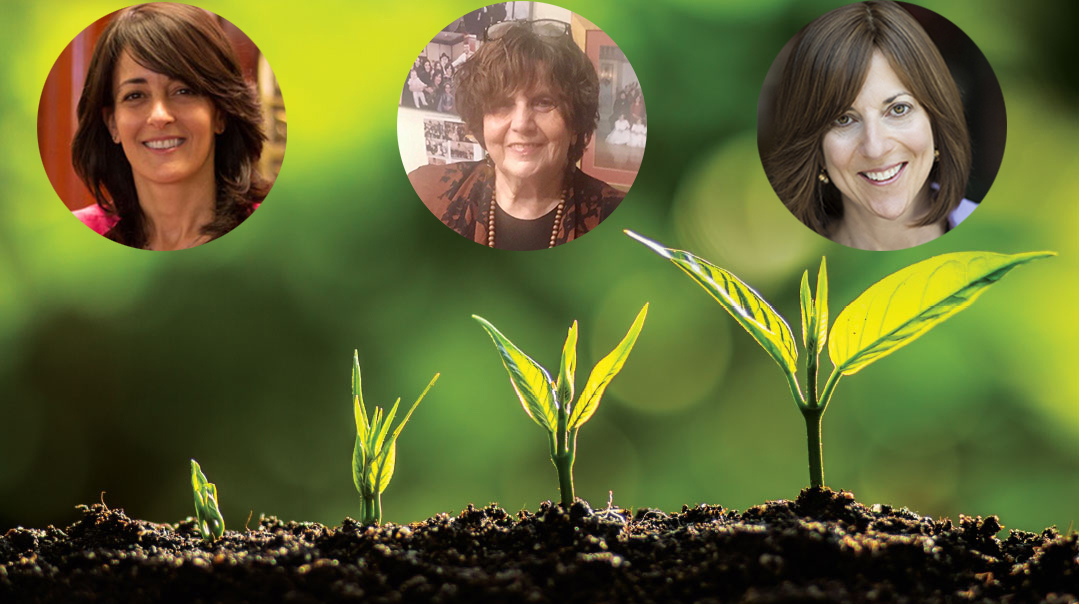
Mrs. Esther Wein is an internationally recognized educator and lecturer for over 30 years. She teaches in Elyon seminary, Shulamith high school, the Jewish Renaissance Center, and Juniversity.co.
What are the most common challenges frum women are dealing with today?
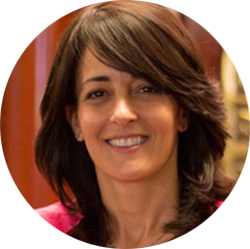
In a lecture I recently gave to 200 female principals, I asked them to draw a picture of themselves and Hashem in space. Typically, most people will draw a picture placing Hashem at the top and themselves at the bottom. When asked to describe this relationship, the answer was that Hashem is the Big Boss in the sky, and I’m a tiny speck.
Taking it a step further, it means I need to keep Hashem happy so horrible things won’t happen to me. This is a relationship driven by fear and the desire for what I need. “I’ll give money to Camp Simcha, so You don’t give my child cancer.” It’s like avodah zarah — how can I keep the sun god happy so he won’t zap me? In addition, praising Hashem is taught as a way of buttering Him up to get what we want. This attitude is irrational and self-serving because it turns mitzvos into methods of manipulation.
The more accurate model would be a drawing of a fetus in the womb, us within Hashem, since in reality, there’s nothing outside of Hashem. Furthermore, Hashem created man in His image. That means we’re like Him in the sense that we, too, are here to create. Understanding this shifts us into “creator mode.” The mitzvos form us into co-creators; they’re for us and not for Him. Tefillah is about evaluating how we’re doing as Hashem’s partners, as opposed to a deal-making mechanism to net us the best chance at getting what we want and avoiding what we fear.
We're meant to partner with Him in the unfolding of the story of mankind. His desire is to run the world through us. The Purim story is referred to as Megillas Esther because the events unfolded through her. We all have the ability to put our fingerprints on G-d’s plan. And we have no idea how far reaching our fingerprints can be.
How are the challenges different than those we face 10, 20, 30 years ago?
It seems like we’re increasingly hijacking the resources Hashem gave us for the purpose of partnering with Him, and instead using them to ensure and enhance our survival.
Often, in an attempt to feel relevant, we work on achieving success in order to gain value in peoples’ eyes. This is distorted. We’re creating ourselves through how people view us, rather than through how Hashem views us. An example is when we recruit our creative energy to make a simchah where the focus is gaining stature in others’ eyes instead of it being an opportunity to include the forgotten members of our community. This is “survivor mode” masquerading as “creator mode.”
At best, we’re wasting our G-d-given creative energies and we feel empty. At worst, we turn to self-destructive, soothing mechanisms.
In what areas do you see the most significant growth?
I see a tremendous thirst in women to become true creators and get out of “survivor mode.” I have a Whatsapp chat called “Let’s Create.” Every day more women join. Biweekly, one participant will volunteer to contribute a Torah thought and suggest a “creator-mindset avodah” to work on for the week.
What was an answer you gave you didn’t know you had within you?
This whole construct of living in “survivor/creator mode,” which answers so many questions, formed in my head as I was preparing my six-part “Judaism Take 2” series. My many years of teaching has been heavily influenced by my grandfather, Rav Shimon Schwab zt”l; Rav Moshe Shapiro zt”l; my father-in-law, Reb Zalman Wein zt”l; and lehavdil, my husband, Heshy.
What particular moment of greatness have you witnessed among women you’ve interacted with?
There’s a woman on my WhatsApp chat who was able to have a peaceful conversation with her brother for the first time in five years. When we realize someone else’s difficult behavior is a function of them operating in “survivor mode,” we can maintain our “creator mode” stance without getting sucked into their survivor mindset.
What gives you the most hope for tomorrow?
Every single day I witness the determination of these women to get it right. Our chat is 24/6. It never stops. Unbelievable.
(Originally featured in Family First, Issue 663)
Mrs. Lori Palatnik is the Founding Director of Momentum (formerly called The JWRP), a year of learning, growth, and inspiration for Jewish mothers that begins with a transformational eight-day trip to Israel.
What are the most common challenges frum women are dealing with today?
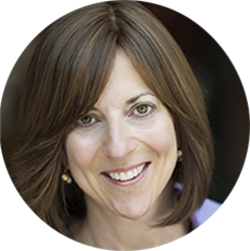
t seems to me they are: 1. Marital challenges, 2. Their children’s spiritual struggles, and 3. The challenge of staying inspired themselves with all the pressures around them.
How are the challenges different than those we faced 10, 20, 30 years ago?
While the Internet is an incredible tool for connection, wisdom, and information, unfortunately, somebody whom in the past would have to don dark glasses and a cap and sneak to town to seek immorality, can now access everything with one click of a button. This reality is affecting marriages.
Children are affected by the Internet. I believe the rise of drug addiction and death in our youth is a result of its accessibility. Base and degrading visuals cannot be erased from the hard drive of anyone’s mind.
Divorce has become more prevalent. I think one of the reasons is because we’re telling our girls that there is a shidduch “crisis.” When people think they’re in crisis, they panic and make bad choices. I told my daughters that they’re not in a “crisis” because they’re not yet married. This is the biggest decision of their lives; don’t make it out of panic and fear.
Young people today also have no idea of what a healthy Jewish marriage looks like. Some come from dysfunctional homes. Between the panic, societal pressure to get married, lack of role models, and lack of understanding of what marriage is supposed to look like, we’re seeing a rise in the divorce rate.
There’s also a foundational lack of understanding of what marriage is. When a couple comes to me for counseling, I will sometimes hand each a piece of paper and ask them to write down their definition of marriage and love. What do I see? Two different definitions. How can they possibly create a loving marriage if they don’t even have a mutual definition of what love and marriage is?
What was the most painful question you were ever asked? How did you respond?
More than one nonobservant woman on one of our trips to Israel asked me, “Why don’t religious people look happy?” At first, I was taken aback, but then I looked around and saw she was right. Everybody looked so stern and serious.
I asked Rav Noach Weinberg zt”l this question. What he did next was something I will never forget. He put his head in his hands, looked up, and said to me, “If frum people only knew how much Hashem loved them, they’d be walking around in a state of bliss. They don’t even know.”
He also told me that the fact that they don’t know is the tragedy of our school system across the board. A child can go to school day and night and learn many things, but one thing he doesn’t learn is that Hashem loves him.
Rav Noach would often say, “The Torah is not a cure for insanity,” and “Don’t judge the Torah by the Jews.” Hashem gave us the commandments for our pleasure. So many of us are doing all the things you’re supposed to do, but forget about taking pleasure. Hashem doesn’t want a bunch of miserable people doing His mitzvos.
What particular moment of greatness have you witnessed among women you’ve interacted with?
The two women who come to mind when I think about greatness are Rachelle Fraenkel and Miriam Peretz. Rachelle Fraenkel’s son was one of the three teenage boys who were kidnapped and murdered a number of years ago. At the time, and to this day, she became a spokeswoman for Jewish unity and continues to inspire the Jewish people to come together across all political and religious divides.
Miriam Peretz lost two sons in Israeli wars, and her husband died of a broken heart. She speaks to our women at her sons’ gravesides. She starts by saying, “No mother should ever go to the cemetery and have to decide which son she should visit first.” Yet she shares her eternal love for Eretz Yisrael and Am Yisrael. You leave her feeling inspired, not depressed.
These women have faced tragedy and yet continue to speak in order to heal a nation. Their dignity and emunah are beacons of light in a sometimes dark world. Achdut, not achidut. Unity without uniformity, that’s their message to us today.
What gives you the most hope for tomorrow?
When I see Jews reaching out and sincerely loving their fellow Jews without judgment. Rav Noach Weinberg used to call the frum world the “Sleeping Giant.” Wake them up and get them to care — embrace your fellow Jew, share some wisdom, invite them for Shabbos. Shabbos is our greatest product. I see frum people who never would’ve imagined doing this, experience Shabbos, whether through Partners in Torah, or Project Inspire, and it’s transformational.
The chiddush is that you think you’re doing this for the less knowledgeable Jew, but in fact the frum person is benefiting just as much or more. Rav Noach would say the best way to inspire a religious Jew is to get him to teach a non-religious person. Articulating why you do what you do means first asking yourself, “Why do I do what I do?” The answers just might inspire you.
(Originally featured in Family First, Issue 663)
Rebbetzin Miryam Swerdlov is a Jewish History teacher at Beis Rivkah high school and camp director for Chabad teens in the Ukraine and Eretz Yisrael.
What are the most common challenges frum women are dealing with today? How are they different than those we faced 10, 20, 30 years ago?
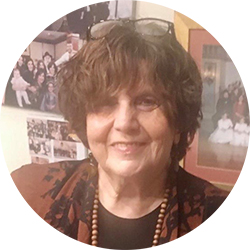
s a Lubavitcher, I can speak about Chabad women with more knowledge than other women. The woman on shlichus, whether it’s in India, Cambodia, Dallas, or Jackson Hole, Wyoming, is changing the world, and she’s doing it alone. Okay, with her husband, but no family, no real friends, no one to share things with face to face.
Since I travel to speak, I see these heroines, I see their constant mesirus nefesh. They homeschool their kids, or have (yay!) three hours a day of online school... I’m in awe of these young heroines.
The challenges I see in our society in general is that too much of the secular world has infiltrated our world. There are too many things to grab, the world is too open.
Thirty years ago, we were a lot more insular. We knew a lot more about who we were. What was going on in the outside world didn’t concern us much. Now everything can be found in the little box in my hand. With one push of a button, I know that Lakie got a new chandelier. How do I know? She posted it on Instagram. You have to be a tzadeikes today not to be even a little jealous of Lakie, not to be resentful that my Moshe can’t buy me that sheitel.
In what areas do you see the most significant growth?
I see Torah and Yiddishkeit growing all around me. You can listen to shiurim 24 hours a day. The thirst is tremendous. Again, because I know the Chabad world more, I can tell you that there are more than 4000 Chabad houses all over the world. A new one opened in Rwanda, Africa.
I’m speaking to you from Dnipro, Ukraine, the biggest Chabad Center in the world. In addition to the shiurim and minyanim and a gorgeous mikveh, there are three magnificent restaurants. I went on a cruise recently with Satmar mothers of special needs children. They’re so knowledgeable. They know what’s out there to help their children, they’re familiar with all the latest techniques. These courageous women learn whatever they can and move ahead.
I see growth in the non-religious world as well. I arrive at a town to speak where there’s no Yiddishkeit and 300 women come to hear my lecture because it’s a Torah lecture. People are searching. They’ve done everything and they see it means nothing.
What was the most painful question you were ever asked?
A woman told me that although her husband still wore the levush, she didn’t think he was religious anymore. He wasn’t there for their children either. She asked me, “What should I do?” My response was that as long as he wasn’t abusing her or the children, she should stay in the marriage and do the best she can.
She said, “He loves me and financially supports me. He just doesn’t want to be with the program,” I said, “If you can live with it, don’t see what you don’t need to see and don’t ask questions.” I don’t know if I was right, but I believe that if she stays with him, he will return.
What particular moment of greatness have you witnessed among women you’ve interacted with?
Every sheluchah is incredible. When I come to a place and see a successful shlichus, mark my words, it’s the woman. She’s friendly, gives classes, and makes a mean cholent.
What in your work gives you the most hope for tomorrow?
What I’m doing now and have been doing for the past 24 years. I run a camp in the Ukraine for Lubavitcher girls. When I observe regular 16-year-old girls, who normally think about what all 16-year-olds think about, start crying like an open faucet standing by the kever of the Baal Shem Tov, I know we have a future. Yesterday she was thinking about buying that tighter skirt, today she’s talking about nefesh hayechidah and chelek Eloka mimaal. Watching these girls climb up the rungs and come out a different person is what gives me life.
(Originally featured in Family First, Issue 663)
Mrs. Chaya Kalazan teaches at Ohr Naava, the Jewish Renaissance Center, The New Seminary, Masores High School, Elyon Seminary, and TBY.
What are the most common challenges frum women are dealing with today? How are they different than those we faced 10, 20, 30 years ago?
T
he phenomenon of kids and spouses struggling and going off the derech.
I think technology has alienated people from one another. There’s less of a parent/child relationship because of it. There are expectations created by it that we never had before.
Also, 20 years ago, it was assumed that if parents were religious, their children would be religious. Belief in Hashem was not discussed among frum people. Women today are looking to find answers to emunah questions and for guidance on how to deal with a relative who is faltering in his faith.
The question 25 years ago was, “Should I go to the movies or not? Should I talk to a boy or not?” The question today is, “Do I believe altogether?” Today we have to address the issues of an alternate lifestyle. We have to explain why the Torah calls it a “to’evah.”
Also, I find that while women, in general, are learning Torah more and getting closer to Hashem, more men in the business world are being negatively influenced by the liberal agenda and the secular environment.
Finally, mental health issues like anxiety, OCD, and depression are more prevalent among women and/or their family members. In classes, I have to address topics such as: How does Torah integrate the emotional side of the self, can bitachon combat depression, do the laws of taharas hamishpachah support or challenge marital health?
In what areas do you see the most significant growth?
Nobody talked about hisbodedus ten years ago. Now people are taking time to meditate with Hashem. While women are exercising on their treadmill, they’re listening to shiurim or they’re concentrating on the Six Constant Mitzvos. We used to play board games and just wait until the fast was over on Tishah B’Av. Now there’s a full-day program. The proliferation of gemachim and chesed organizations is wonderful.
I see more and more people coming to realize that it’s not apikorsus to ask questions regarding emunah. Part of our growth is our openness to have these discussions. Rebbetzin Leah Kohn has developed a three-year program for educators to teach basic Jewish hashkafah and philosophy to their students. Her program addresses belief in G-d, free choice, the goal of creation, the role of man in creation. This was never a part of the typical Bais Yaakov curriculum. But with this information, the next generation of women will have greater clarity as to what they believe in and why.
It’s more accepted today to be honest about our issues. Unfortunately, alcohol and drug addiction is now part of our landscape. The good news is that people are more willing to address and create symposiums on how to deal with these issues. It’s okay to go to therapy for anxiety, OCD, or personality disorders. It’s less of a scandal to acknowledge we need help.
What particular moment of greatness have you witnessed among women you’ve interacted with?
I’ve seen women who have their own pain, yet they’re still compassionate and reach out to others. Women who have lost children and rather than curl up into a cocoon, they’re there for each other, giving support, running shiurim on the yahrtzeit for each other. Women like Mrs. Batya Ruddell, author of On Their Derech, a book about at-risk children, who had the courage to bring what others are struggling with to the forefront.
What gives you the most hope for tomorrow?
I notice a greater movement of women desiring a personal relationship with Hashem beyond being religious. They’re asking questions such as: Where is Hashem in my life and in the world?
I think what was happening in Mitzrayim is playing out today. I believe it’s the awesome women who keep fighting for their families to stay connected to Torah and to truth who will bring the Final Redemption.
(Originally featured in Family First, Issue 663)
Mrs. Yael Kaisman is an educator and kiruv professional who counsels individuals and couples in Lakewood, NJ.
What are the most common challenges frum women are dealing with today? How are they different than those we faced 10, 20, 30 years ago?
O
ver the past 30 years, the frum community has been blessed with financial prosperity and phenomenal population growth. But here are new challenges that come along with both.
With prosperity, a high standard of living becomes more of a norm — lavish vacations, expensive wines, the best cuts of meat. And, inevitably perhaps, as material success increases, we begin to focus more on superficiality, even as we try to maintain higher spiritual ideals.
There’s a tremendous push today to succeed both externally and internally. Years ago, for example, nobody worried about having a large family and staying skinny. Today we must do both, otherwise we feel like failures.
Vulnerability is out. We have to be perfect on every level. When I, as a speaker, reveal my vulnerabilities, I feel palpable relief from my audience — a feeling of oh, really, you’re allowed to feel that? I’m not the only one who does?
Today, the goal seems to be “Torah U’gedulah,” people strive to be wealthy and a talmid chacham, to run a successful business and be a rosh chaburah. Of course, there are wonderful individuals who have been blessed to have success in both areas, but generally, aiming for both is an oxymoron. Focusing your primary aspirations on one goal diminishes the likelihood of achieving the highest levels in other goals.
Another outgrowth of our brachah of demographic growth has engendered a greater sense of self-doubt in young people. They feel they aren’t needed, that they’re insignificant. Thirty years ago, when the community was smaller, we understood we had an important role to play in the growth of Yiddishkeit. If I would say to my students today that they’re the future of Klal Yisrael, they’d roll their eyes and say, “Oh yeah, so why can’t I get accepted to seminary? Why is there a shidduch crisis?”
This dilemma leaves individuals desperate to prove their value by achieving some kind of exceptional external status, which can range from being part of a “choshuve” community to being an influencer on Instagram. The real truth is that each of us has a vital — although perhaps less glamorous — role to play in This World by working on our personal growth and avodas Hashem. That’s a contribution that nobody before us or after us has ever or will ever make.
In what areas do you see the most significant growth?
I see incredible growth in Torah learning and observance of the details of halachah. I also believe, contrary to what many think, that there’s a tremendous consciousness of tzniyus today, even as there’s great struggle.
I see women striving to grow in emunah. They say Tehillim on a different level, they form mussar chaburahs. Torah Anytime has revolutionized the ease of access to shiurim, the Chofetz Chaim Heritage Foundation has revolutionized Tishah B’Av and shemiras halashon.
What was the most painful question you were ever asked?
“How do I live with the painful realities of my past, especially when it’s now repeating itself in my present?” The woman asking the question had worked hard to escape the past, and yet she feels like her present is filled with so much of what the past was about, and it’s beyond her control.
What was the answer you didn’t know you had within you?
That it’s not the words you say. I realized the answer is about the power of holding the pain, being willing to be with the person in that difficult place. It’s about modeling the compassion Hashem has for them in complete non-judgment. I’m always awed at the power we’ve been given to help others. It’s a pale reflection of Hashem holding us in our pain, and understanding that our pain is not useless.
What particular moment of greatness have you witnessed among women you’ve interacted with?
I’ve had the privilege of accompanying Mrs. Gail Sassoon on a tour through the house of learning for Sephardi women that she established in Flatbush. Each classroom is dedicated to the memory of one of her seven children who died in a house fire a few years ago.
What gives you the most hope for tomorrow?
I’m awed by the courage women show to forge forward through their pain even when they feel they can’t move one more step. I’m awed by the human spirit within that yearns to expand to do ratzon Hashem. So many struggling girls tell me, “I wish I was a simple Bais Yaakov girl.” After going through so much garbage, what they really want is a relationship with HaKadosh Baruch Hu.
I’m also inspired by the proliferation of Torah sources that can speak to our generation. And the courage and wisdom of rabbanim who understand the language of the pain of our generation and are trying to help people with it.
(Originally featured in Family First, Issue 663)
Oops! We could not locate your form.












